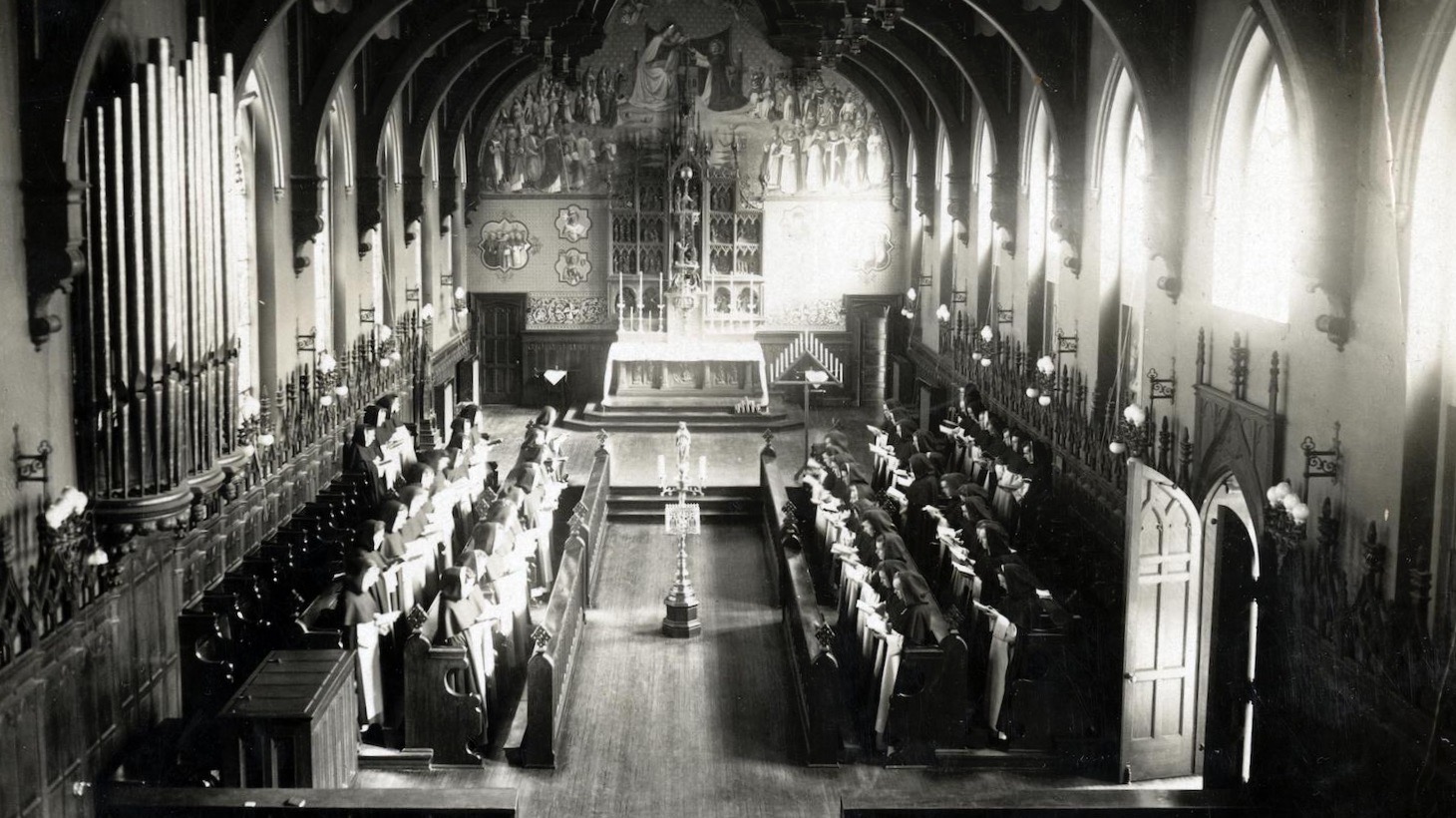Forma Vitae: An Essay on the Dominican Life
A “forma vitae” essay is meant to convey something about the “form of life” that we, as Dominican friars, live in virtue of our religious vows. Each “forma vitae” essay should provide accessible, insightful, and revealing commentary about the Dominican life and vocation. Other “forma vitae” essays can be found here.
℣:O Lord, open my lips,
℟: And my mouth will proclaim your praise.
Each morning, my brothers and I chant this verse from Psalm 51. With these first words of our day, we pierce through the darkness, and the silence of night retreats.
This is the beginning of the Divine Office, also known as the Liturgy of the Hours, the public prayer of the Church. It is the ancient practice of praying with words of Scripture, particularly the Psalms, to mark out the hours of the day and to fulfill the command to pray without ceasing. The Office, also known as the Opus Dei, the Work of God, is the true occupation of a consecrated religious. Through the Office, flowing from the Mass, we sanctify our whole day. A religious is consecrated to God, and his whole life is an act of praise and worship to God. Each morning, we recall this reality.
The Mass and the Office are the foundation of our lives as religious. When we pray the Psalms at Office we both imitate Christ and demonstrate our faith in him. In fact, Christ, as an observant Jew, prayed the Psalms and as the Messiah, fulfilled them. Christ took on the fullness of our humanity, and his words, the Psalms, encompass the entire human condition. There are Psalms for every season of life, for every trial and success, for every bout of anxiety and consolation. They are songs of lament, of sorrow, of distress, of joy, of praise, and of thanksgiving. The great genius of the Psalmist is that he is able to put human feelings and emotions into words. A masterwork of prayer, The Psalms help us to share in the very heart of Christ and his people (see CCC 2585). But these feelings and emotions that we experience in our hearts are not novel, men and women have had the same experiences down through the ages. It is a reminder that we do not pray alone, but we add our prayers to the chorus of the generations that came before us as well as with the rest of the Church today.
We experience this unity of heart in the Office. As Dominicans, the Office is offered by each person individually but chanted in the context of the community. The Office engages not only our minds but also our bodies, it’s really rather dramatic. There is a choreography of different movements: we begin kneeling and then rise to turn and face the altar. Then when we get into the Psalmody, the side leading the Psalm stands while the other sits. All of this is done in relative unison. In addition, we must match the volume and pitch of the friars, listen for cues from the organ, and attend to the pacing of the chant. Chanting the Office in common means striving for unity, on the one hand, the friar’s voice cannot be too dominant, on the other hand, he cannot completely withhold his contribution from the community’s prayer. All of this is done so as to raise our voices in one heart and mind to God so that we may be more conformed to him and ask for his divine aid.
But we raise our voices not only for ourselves, and not only for a beautiful liturgy. The Office is a service offered to the whole Church. As religious, we consecrate ourselves to God and make an offering of our lives in order to strive to become perfect in charity. We do this especially through our prayers. Since the Office is the public prayer of the Church, the whole world benefits when it is prayed with reverence. In this way, the Office allows us to be instruments in building up the Body of Christ, which is the Church. It is integral to the life of a Friar Preacher who uses the fruits of his contemplation, meditating on the Word of God, in order to perform the active work of communicating that same Word for the salvation of souls. This offering is integral to the contemplative life, but is also prior to any active apostolic work, since in the Office we orient ourselves towards God who is our beginning and end. Religious offer this praise to God on behalf of the Church Militant, fighting to make the Gospel known in the world, but also for the Church Suffering, those souls in Purgatory awaiting to be admitted to the heavenly banquet. We are reminded of this at the end of the day in Compline, the Church’s Night Prayer, which draws us into silence, and closes with the words:
May all the souls of the faithful departed, through the mercy of God, rest in peace. Amen.
✠
Photo from Dominican Archives (used with permission)







